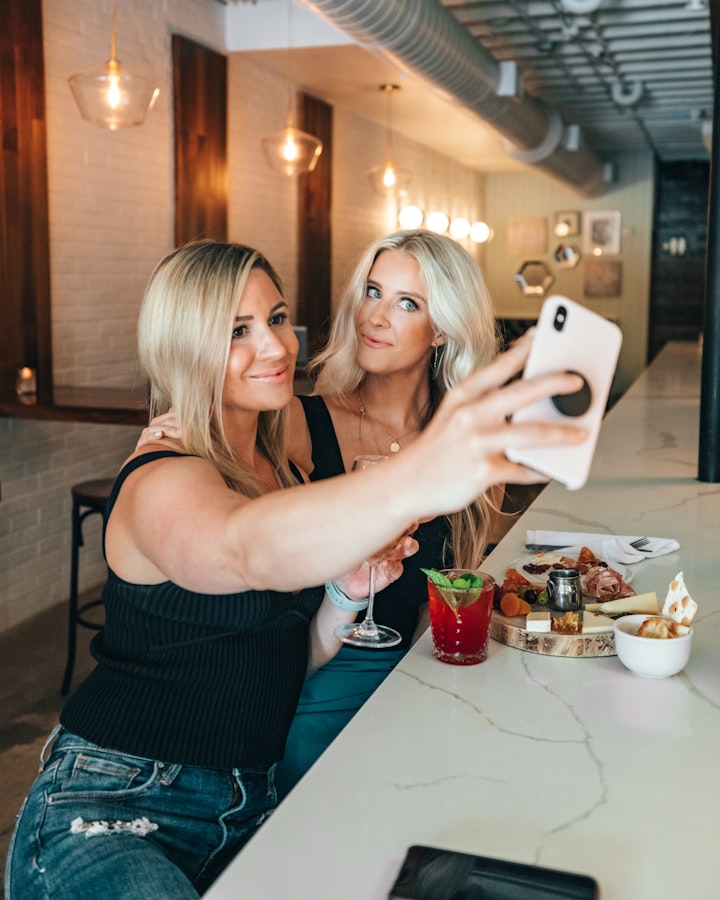Social Media is Shaping a Whole New Generation of Narcissists
Welcome to the 21st-century digital pandemic.

In the era of me, my cellphone, and I, if I were to ask you what's the first thing that you do right when you wake up, chances are that the answer would be 'I check my social media'.
It's no secret that there has been a massive increase in the use of social media over the past 15 years - from being non-existent to now everyone and their mother using Facebook, Instagram, or TikTok for hours on end every single day.
And with all those annoying Facebook friends who just can't stop posting selfies, a simple - but complex - question has started to rise: is social media becoming an outlet for narcissistic individuals to self-promote? Or is social media actually turning us into narcissists?
Recent studies are showing that we are living in an increasingly narcissistic society - and there's no going back now. But in a society where primetime television is dominated by "reality" shows as fake as the Kardashians' butts, where people would rather take a million photos of the concert they're in or the coffee they're drinking than enjoy it, this may not come as a surprise.
Thousands of research papers have been written about the rise of narcissism amongst younger generations, from Millennials to Gen Z. In professors Jean M. Twenge's most recent work, The Narcissistic Epidemic, she reveals how data from over 36,000 college students showed an increase in narcissistic personality traits, rising as fast as obesity from the 1990s to today. So it's safe to say that there's a new pandemic in the world, and it has nothing to do with evil viruses.
Is Narcissism a Learned Behaviour?
As it turns out, narcissism is not a permanent personality trait, but rather a display dependent mainly on the environment. Consequently, media can - and does - influence how much of a narcissist we are. For instance, a recent study proved that people exposed to narcissistic reality TV presented higher levels of narcissism shortly afterwards.
But what's more concerning is that new studies contrasting life goals and habits of young people with those of Baby Boomers - the generation born from 1946 to 1964 - display an increase in extrinsic values rather than intrinsic ones. Younger generations are more likely to value appearance, fame, and money over self-acceptance and fellowship.
With that being said, who's to blame for this new 21st century pandemic of self-absorbed souls? Are Mark Zuckerberg and Facebook the sole causers? Should we blame modern technologies, or maybe new parenting styles?
To give this question an answer, research making connections between Facebook and narcissism has been done over the last couple of years. Studies are consistently finding that people who score higher on the Narcissistic Personality Inventory questionnaire tend to have more Facebook friends, tag themselves more frequently in photos, and update their statuses more often.
"Narcissists use Facebook and other social networking sites because they believe others are interested in what they're doing, and they want others to know what they are doing." - Laura Buffardi
People with narcissistic personalities need admiration and attention from others. They thrive on easy-to-obtain social media endorsements such as followers, likes, shares, and retweets. So it's no secret that "born" narcissists are having the time of their life; however, these newfound rushes of self-esteem are rapidly making their way to the newly-formed narcissists.
A paper from 2011 exposed that teens who use Facebook more frequently show higher narcissistic tendencies than their peers. Extended Facebook use is directly linked to narcissism in adults, too, as conclusions from a self-report study published two years ago indicate.
The Problem With Social Media
It doesn't come as a surprise that platforms created for sharing your content and connecting with people put a focus on the self, which can eventually transform into self-obsession and self-admiration. But this phenomenon goes way beyond people taking too many selfies and treating each life event and situation as a major self-promoting opportunity.
This is why people desperately put #likeforlike and #follow4follow hashtags below their Instagram photos. The need for validation is so ingrained that it has generated an entire exchange "economy" where people sell themselves out to other users, offering to reciprocate insincere engagement with more insincere engagement. And the saddest part is that this feeling of low self-worth doesn't matter as long as that tiny ego-affirming notification pops up on their screens.
Every like and retweet gives the brain a small rush of dopamine which some sources say are comparable to the dopamine release that comes from taking a small hit of cocaine. Furthermore, social media platforms encourage self-promotion, as users generate all of the content.
W. Keith Campbell reports that people usually use Facebook "to look important and to gain attention and status".
The problem with this perspective of social networking is that nearly everyone displays an unrealistic representation of themselves. Nobody chooses their ugliest photo as their profile picture, and altering their images to make their waist smaller, their butt perkier and their skin softer is not out of the ordinary for most users.
This fake reality that everyone is trying to sell has a huge impact on younger people and their self-esteem, as they're discovering themselves and getting to know what is considered "beautiful" and what is not. Multiple studies showcase how the suicide rate and the increase of social media usage are not coincidental; and every day, more and more people are struggling with eating disorders and depression.
This goes hand in hand with the illusion of 24/7 happiness. Have you ever wondered why everybody seems happy on Instagram all the time? - It's not because their lives are perfect, it's because they choose to depict them that way. Recent studies of undergraduates across the US have shown that pupils who were more engaged with Facebook were more likely to believe that other people's lives were better.
These frequent Facebook users were also more inclined to negatively compare themselves to others and feel worse about the way they looked and thought.
Final thoughts.
We're all narcissistic to some extent. And in the digital world, self-exposure has become an easy way to communicate, which many of us embrace and support.
The problem with social media, as great as it is for many reasons, is that it has a wicked side - which is a very dangerous one. We have created a generation of self-obsessed narcissists, dominated by instant happiness and self-validation from insincere engagement. So even though joining these platforms is free, the long-term use quite obviously comes at a high price.
Therefore, instead of using social media to desperately look for acceptance and praise from others, it should be used to share happy - and not so happy - moments and experiences, and to connect with others on a much deeper level.
We should also utilize social media to become more informed about current events and give a voice to the voiceless in this loud and fast-paced world. It should be used to grant visibility to people, conflicts and movements that otherwise might be forgotten.
But it sure as hell shouldn't be a place where people constantly feel insecure, pressured, and judged.
About the Creator
Lara Hayes
Hey, I'm Lara! Welcome to my 3 a.m thoughts and sometimes unpopular opinions.






Comments
There are no comments for this story
Be the first to respond and start the conversation.